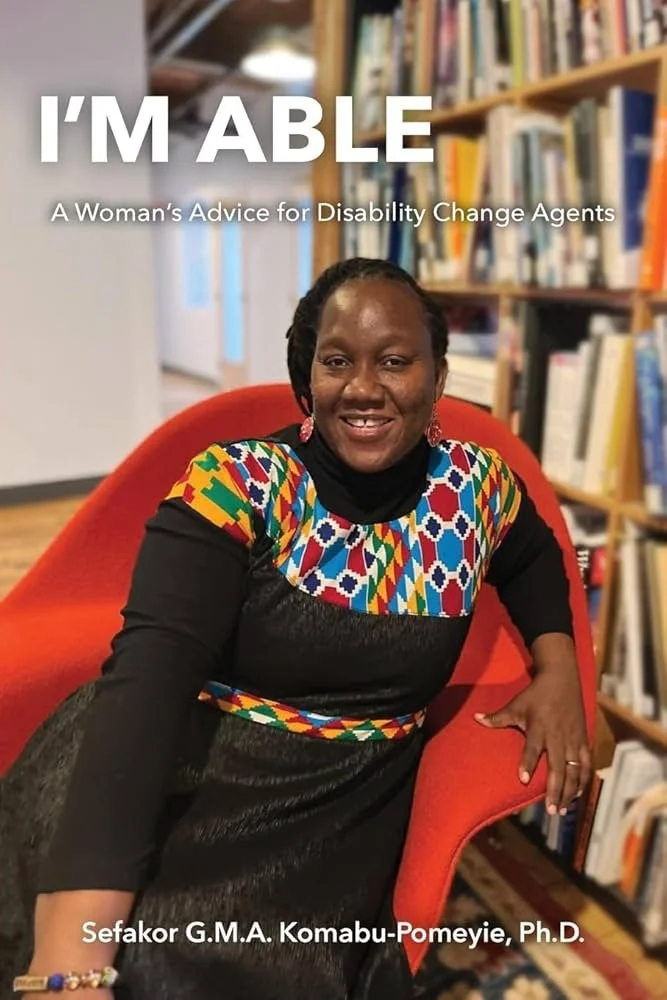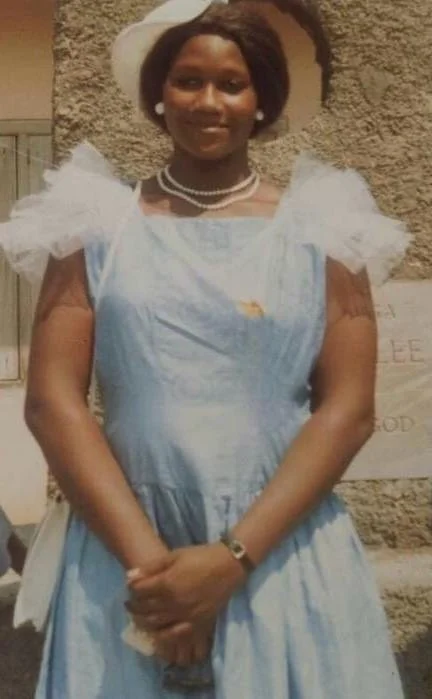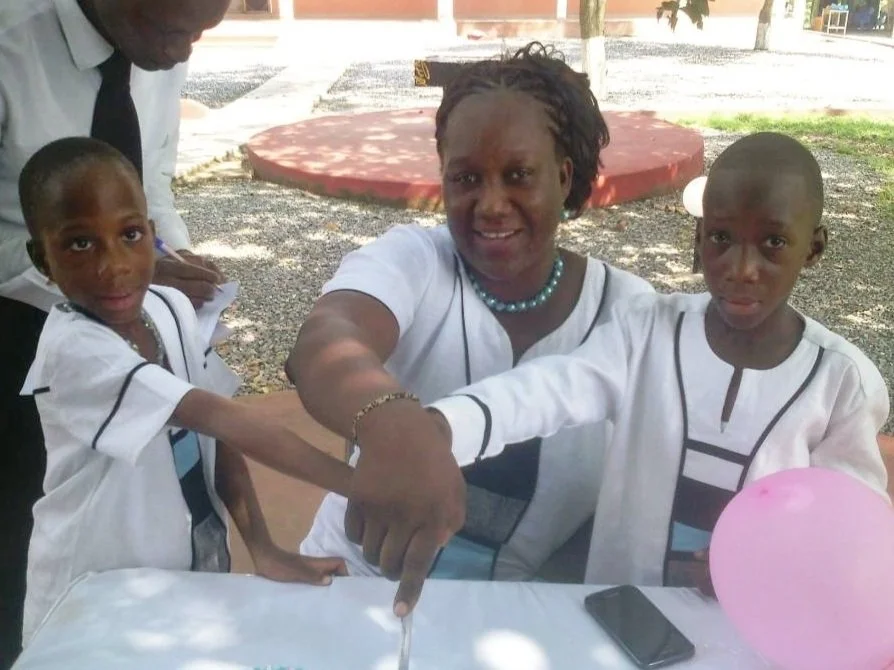I’m Able: A Woman’s Advice for Disability Change Agents
A book review by Laura Vittorioso, M.Ed
I just finished reading Sefakor’s story about growing up in Ghana, Africa, having contracted Polio in 1975 at age eight despite receiving the Polio vaccine. Apparently, vaccines are hoarded in Africa and it was determined that the vaccine she received had expired. Sefakor was left with one leg totally paralyzed and the other leg weakened. She crawled or was carried for some time before she was eventually fitted with “calipers” which must be what we call “braces.” Sefakor suffered a great deal of discrimination in her country as disability was considered a curse from God. Her father who had been a loving and doting parent eventually left Sefakor and his wife as he could no longer bear the shame of having a disabled child. As an only child it was just Sefakor and her mother. She attributes her ability to overcome her disability to her mother who never gave up on her and always encouraged her to be her best. At an early age Sefakor’s mother told her that her only way to achieve success would be through education and she made it her primary goal to ensure that Sefakor was enrolled in mainstream school. Initially Sefakor had to be carried to school on her mother’s back and when she became too heavy, her mother hired a man to take her to school on his scooter. Sefakor was forced to crawl at school as she was not outfitted with braces and crutches until much later. She suffered a great deal of ridicule from her classmates, but her mother’s enduring love and ongoing encouragement enabled her to remain in public school.
Sefakor’s educational journey is one of perseverance and determination. There were many obstacles as there was no accessibility and she was often forced to crawl up stairs and once outfitted with braces and crutches struggled up many flights of stairs to get to her classes. She recounts many falls, and falls down stairs where she broke bones and had to be hospitalized. Despite her many falls and mishaps, she never gave up on her goal of education. Fortunately, she was very bright and hard-working; therefore, was accepted into a very prestigious secondary school and honors classes. Her mother worked hard to support Sefakor’s education, often seeking scholarships and donations from family and friends. Sefakor decided to major in French. Once she received her teaching certificate, she eventually secured a teaching position In Nsawam, the eastern region of Ghana. It took some time and much persistence on Sefakor’s part to find a job that would avail her of the healthcare she required. Sefakor was very successful as a teacher because of her commitment to support each child and leave them “better than I found them.” Following her teaching position Sefakor decided to pursue a Bachelor’s Degree. She was accepted at the University of Cape Coast, one of Ghana’s most prestigious colleges. As Sefakor stood looking around the campus she remembered her mother’s words, “Sefakor, if you want to reach up and touch the world, you’ll need special support and that support is your education.” Again, Sefakor was confronted with accessibility issues. Her dorm room was on the third floor and there were stairs to climb for many classes. However, again with determination and not being easily discouraged she was able to swap her dorm room for one on the first floor. She managed to complete her four years of college not without many falls, one particularly bad fall down a flight of stairs where she injured her “good leg.”
During her time at college, Sefakor reconnected with a man she had met at a mutual friend’s house in her hometown. “He spoke my language and had a name that belonged to my tribesmen. When we meet in a place far from home, we become automatic siblings.” They formed a strong friendship and eventually married. “Bubu” was also enrolled in teachers’ college.
After graduating from Cape Coast and because her then good leg would no longer support her standing in front of a class, she took a position in the District Education Office and was relegated as a “personal assistant” to the district director. Sefakor used this job to network and introduce herself to the school population. She offered to speak with students who were disabled and who would like to talk to someone else with a disability. She soon became known to the students with disabilities and their parents and started her work as a “disabilities counselor” of sorts assisting students with job finding, etc. She eventually became the poster girl for people with disabilities.
In February of 2008, Sefakor became pregnant. It was at the height of her advocacy work; however, a difficult pregnancy with twins forced her to put aside work as she was bedridden for much of her pregnancy. Sefakor developed eclampsia and following a seizure, slipped into a coma and was rushed to the hospital for an emergency c-section at seven months pregnant. Fortunately, the twins survived, a boy and a girl, but being premature had to spend time in the neonatal unit. Sefakor never woke up from the anesthesia and was pronounced dead. She was prepared for the mortuary, however, on the second day miraculously woke up! This writer wonders if Sefakor might have suffered from anesthesia sensitivity that we have learned is one of the post-polio symptoms. The twins thrived and by eleven months after their birth had grown well.
In 2010 Sefakor was made aware of a scholarship grant for an International Fellowship Program in the United States. She decided to apply and eventually was awarded the grant and began her master’s program as a Ford Fellow in World Learning-Graduate School for International Training in Brattleboro, Vermont. Unfortunately, just prior to leaving for the States she learned her son would require surgery, which delayed her start for the program. She requested a deferment and it was granted. Her son recovered from his surgery, but not before the start of the next school year. Again, tragedy struck, this time her daughter came down with a very high fever. Sadly, she passed away unexpectedly from the fever and although hospitalized it was never determined what caused her death. This delayed Sefakor’s Master’s Program another year. Despite dealing with terrible grief, she decided she had to continue her goal of completing her education in order to do the work she felt destined to do. Sefakor completed her Master’s Degree at the University of Vermont and eventually went on to complete a PhD there.
Sefakor now lives in Vermont where she teaches at the University of Vermont and St. Michael’s College.
“It’s hard looking at the resources involved to be able to achieve such a dream, but I’m not ready to use that as an excuse to give up. My life was hard. Starting as a girl carried on my mother’s back to school, given a can to urinate in class due to the inaccessible nature of our washrooms to falling down stairs of different heights and now to where I am today. It hasn’t been easy, but giving up wasn’t in my psyche so I soldiered on until I reached where I am today.”
I was privileged to meet Sefakor at our annual, professional conference in Stowe, Vermont in 2024.
I’m Able, copyright 2023 by Sefakor G.M.A. Komabu-Pomeyie, PhD




